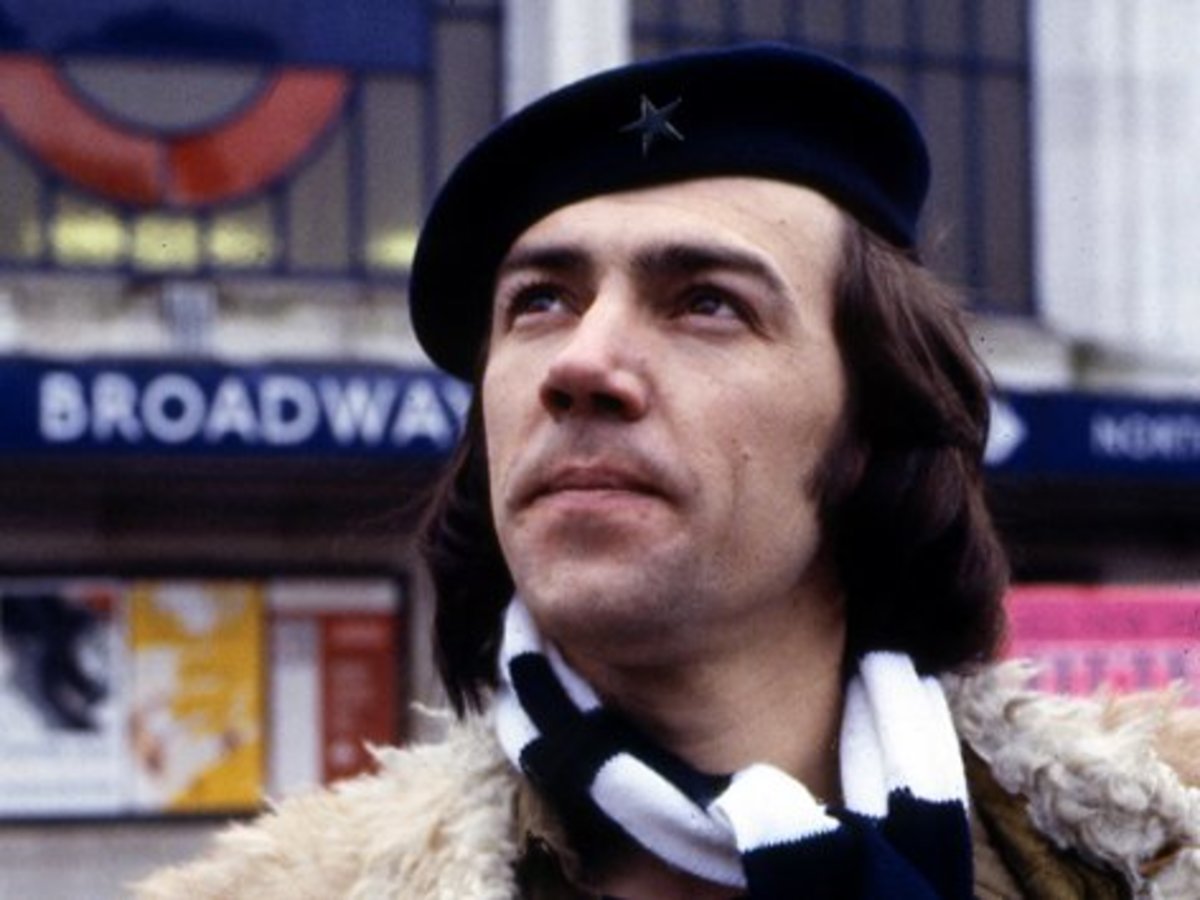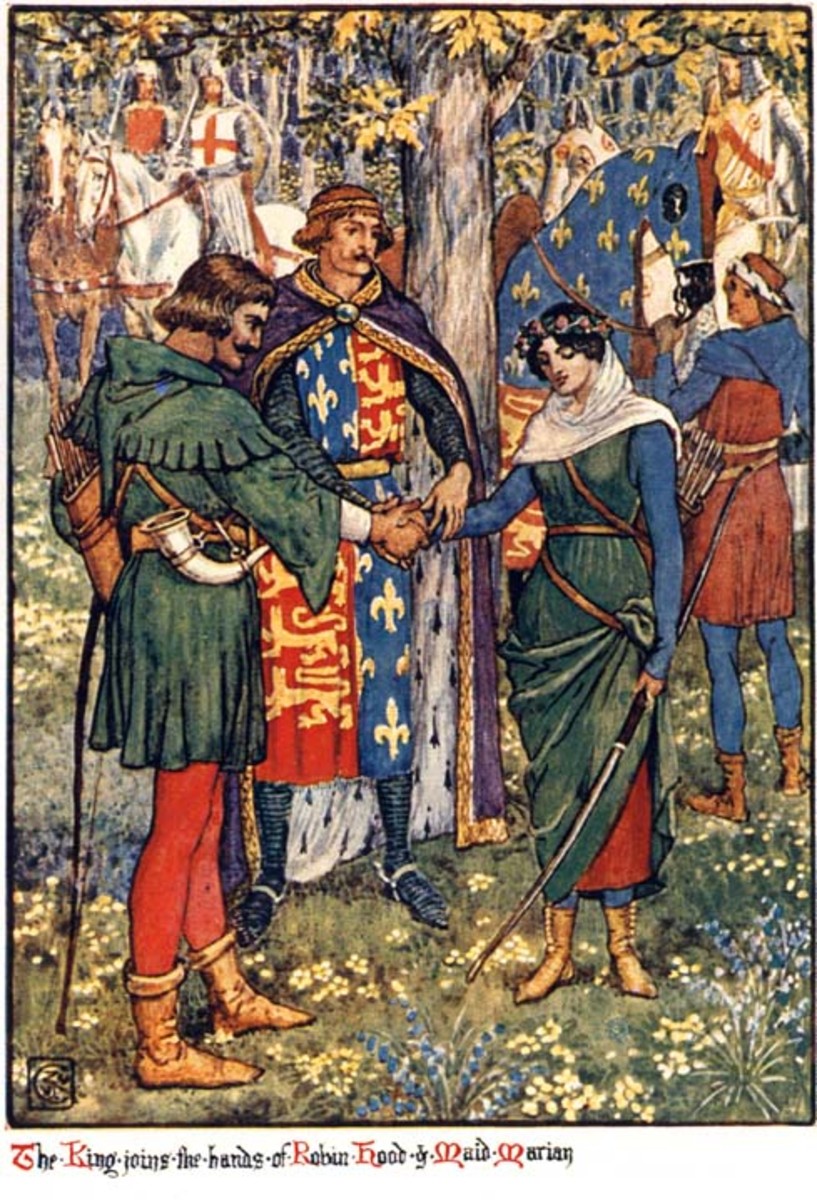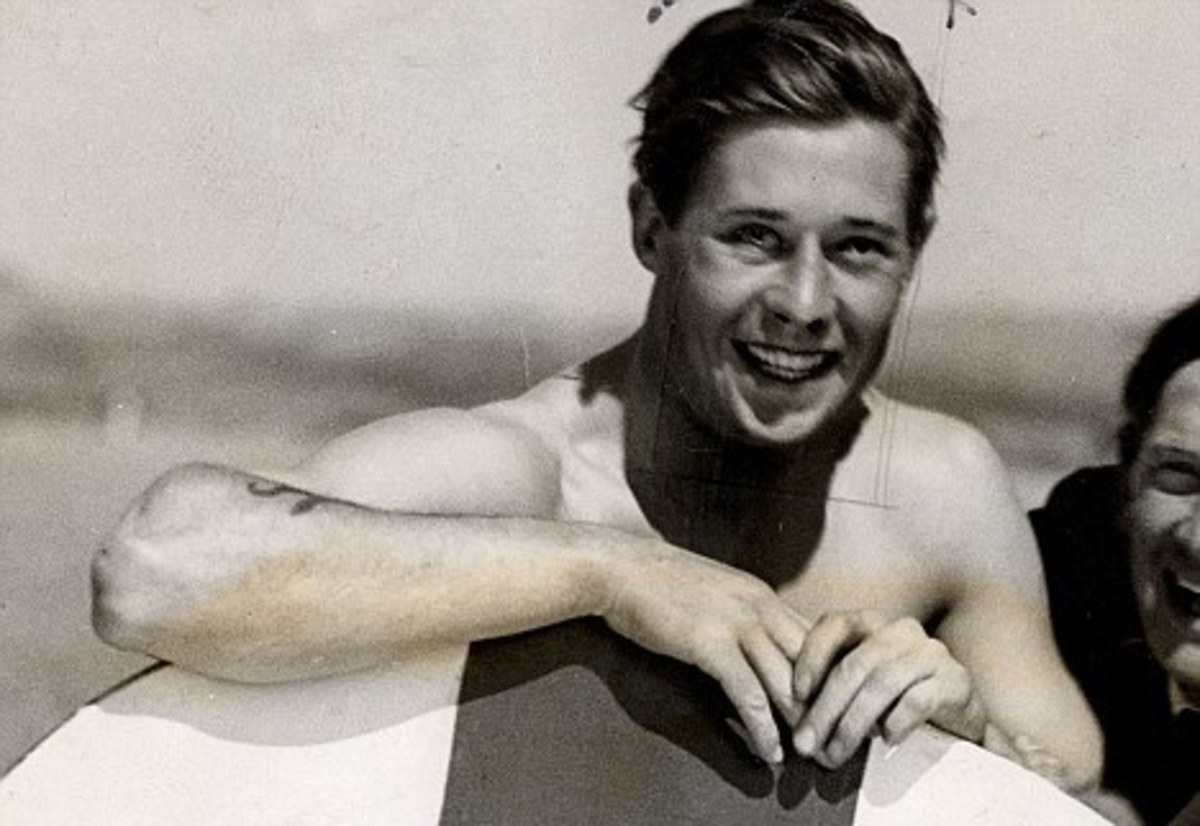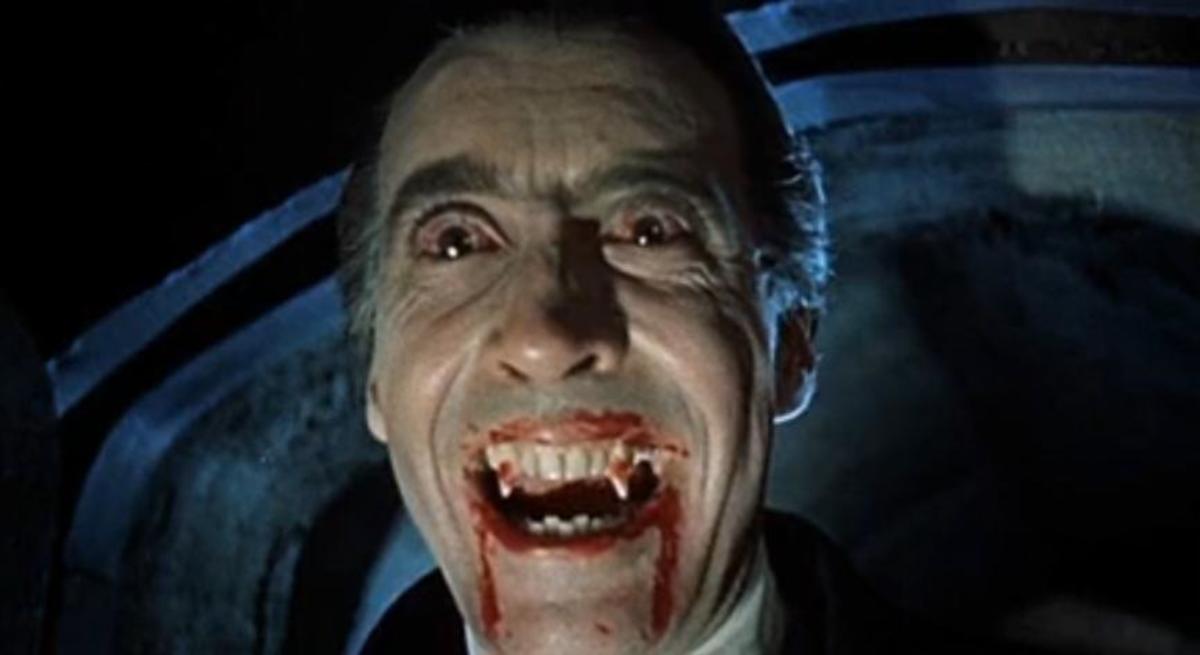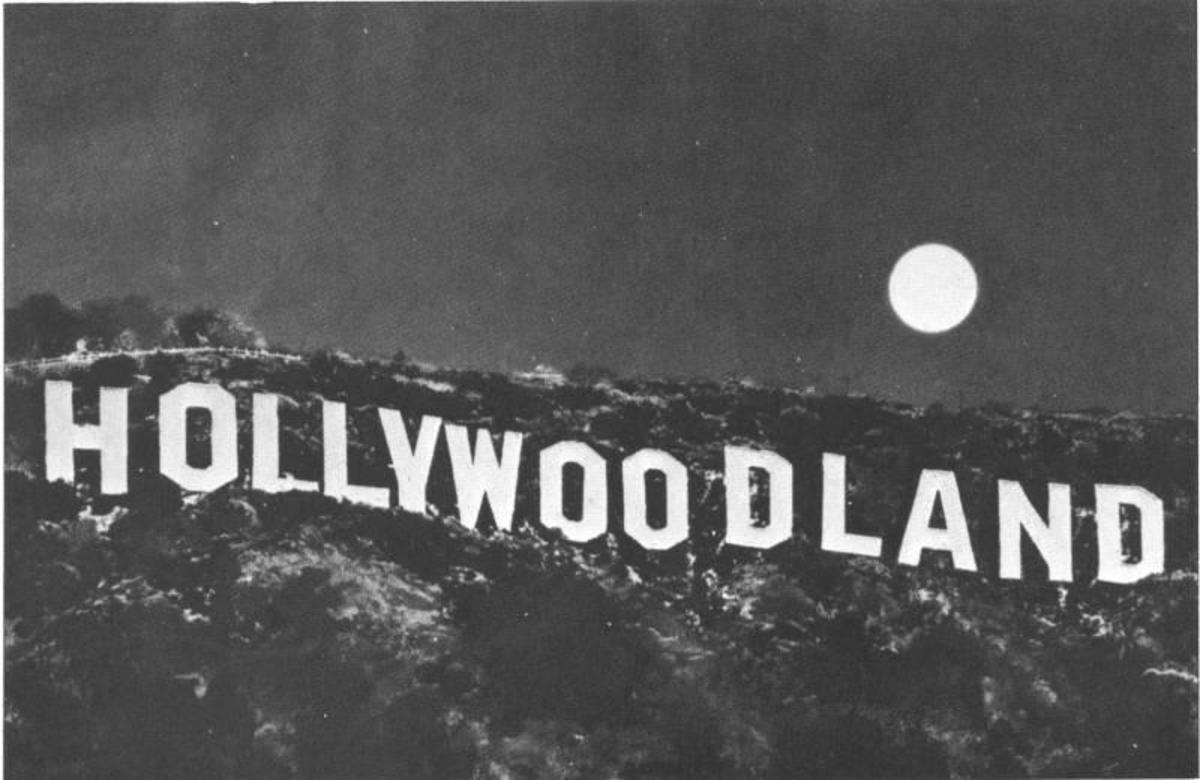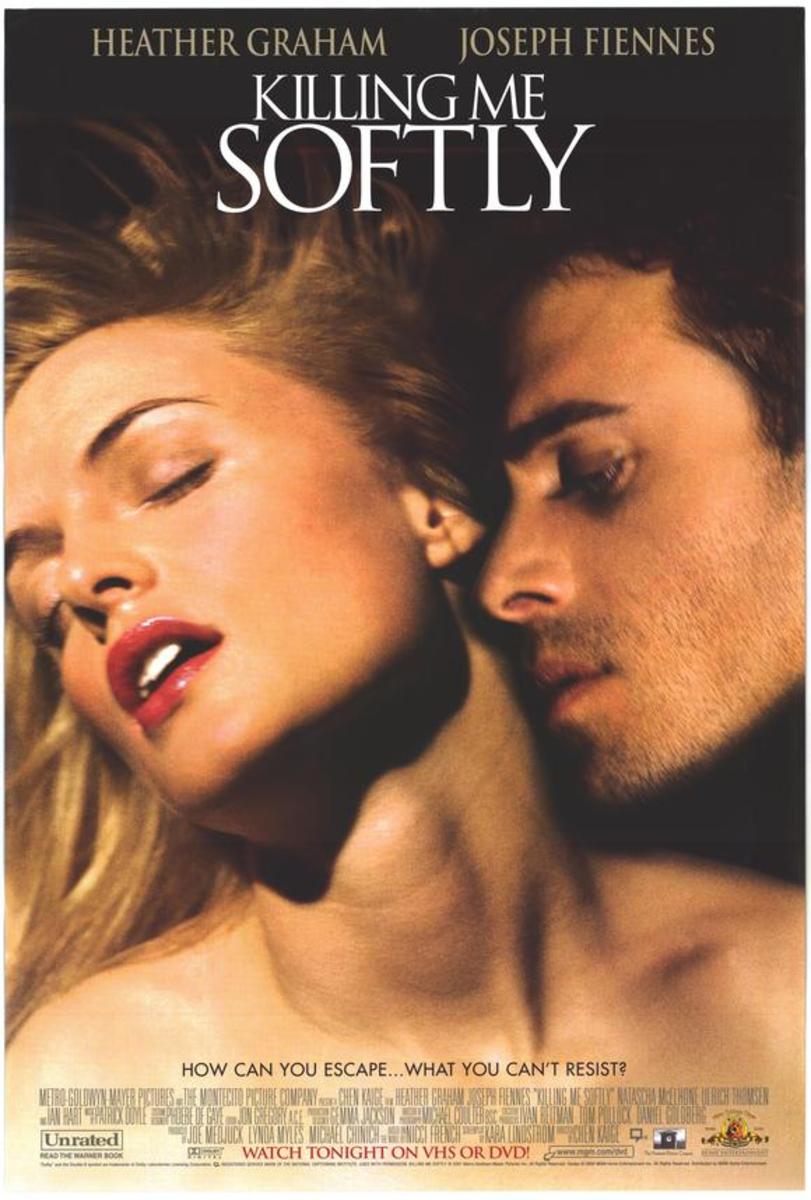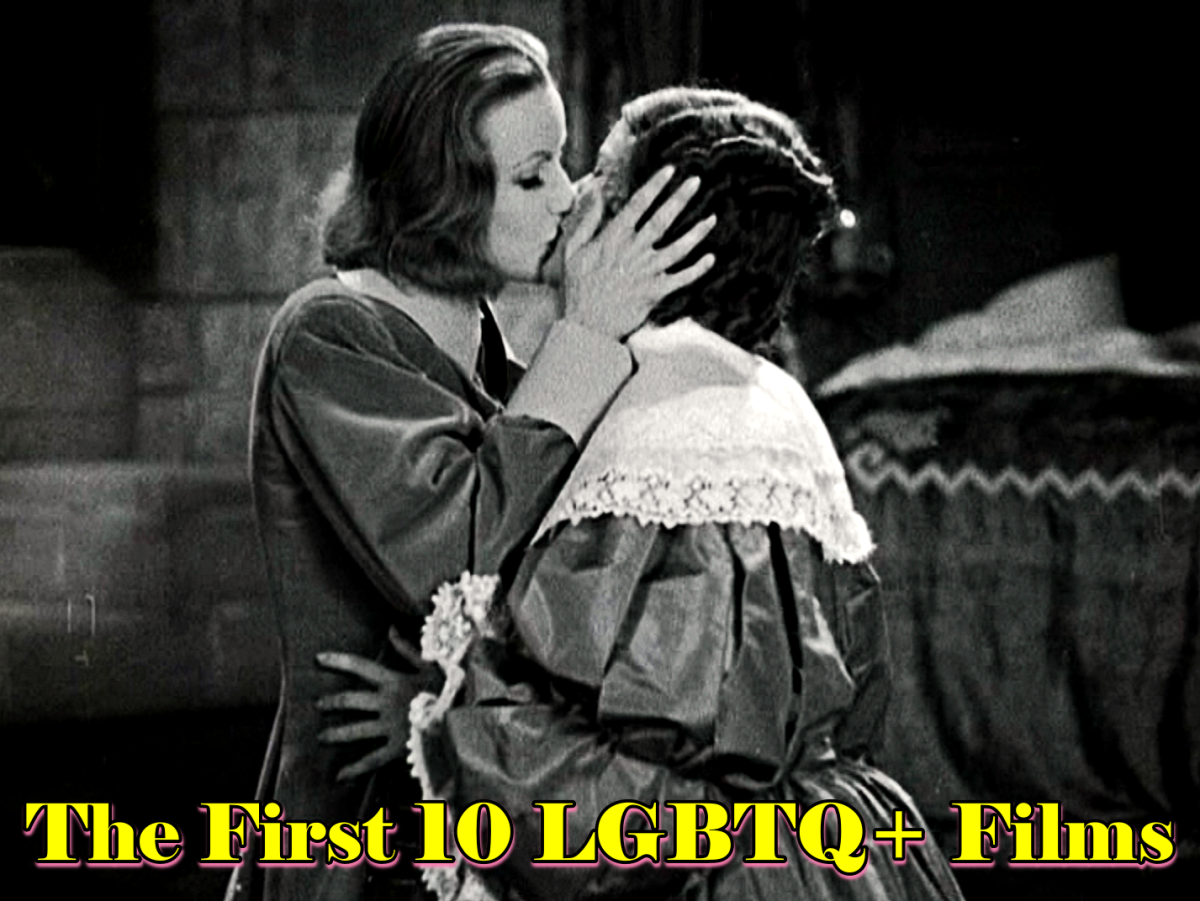British Cinema in Black and White: Ten Monochrome Masterpieces
Ten Monochrome Masterpieces
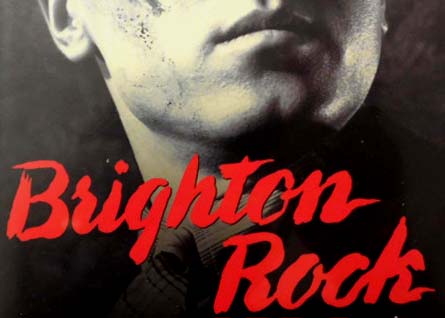
It is Sunday afternoon. You are a little drowsy after a filling lunch, so you recline on the settee. It is raining and windy outside, but you are warm and cosy. A steaming mug of tea sits on the coffee table, and a pack of jaffa cakes is within reach. What you need now is a good movie to watch. But what to choose?
When I was the manager of a movie rental store, I saw many a blockbuster action flick that had some amazing explosions and hundred-miles-an-hour car chases, but the story was often disappointing. In the films listed below, there are few effects and not a great deal of action, but they are all tales well told.
You see, you don't need special effects to spin a good yarn. The movies below were all made in black and white, so while the actual visuals might look dated,the stories themselves have stood the test of time; be they comedy or drama.
Here are ten of my favourite films, in alphabetical order, from an age when entry to the cinema was a shilling, the seats had ashtrays fitted to the backs, and we all sang along to the Pearl & Dean theme tune.
Brighton Rock (1947)
Director: John Boulting
Starring: Richard Attenborough, Hermione Baddely, William Hartnell, Carol Marsh
This old version of Graham Greene’s dark crime thriller is almost as creaky as the loose bannister in Frank’s lodging house, but it has something about it. Much of the film serves as a fine visual reminder of Brighton in the early post-war years, and the sleazy bars, seedy lodging houses and violent racetrack give the film an air of brooding menace.
Seventeen-year-old Pinkie Brown (Attenborough) is the leader of a small-time gang of thugs who extort money from bookmakers. After the gang has committed a murder, Pinkie realises that Rose (Marsh), a young waitress at a local café unwittingly holds evidence that could cast doubt on the verdict of natural causes that was brought in at the inquest. In order to secure her silence, Pinkie courts, and then marries Rose, as in those days a wife could not testify against her husband (and vice versa).
While arrangements are made for the wedding, the suspicions of pub-crawling busybody Ida Arnold (Baddely) are aroused, and she sets off on a personal crusade to get at the truth.
The cracked record scene at the end is somewhat corny, but I remember as a boy thinking it was very clever. We live and learn.
Trivia: Brighton Borough Council refused to allow the company to film the gang fight scenes at Brighton racecourse because of the negative image it might present of the town.
Billy Liar (1962)
Is Monochrome a Turn-off?
Are you reluctant to watch movies that were shot in monochrome?
Director: John Schlesinger
Starring: Tom Courtenay, Leonard Rossiter, Julie Christie, Rodney Bewes
Nineteen-year-old Billy Fisher (Courtenay) fantasizes a great deal. As he lies in bed, Billy, imagines himself as the president of Ambrosia, a nation that has just won a hard-fought war. As a victory parade marches past, Billy sees himself as a glamorous tank commander, cigarette holder clenched between teeth. He is also the leader of the military band, the bass drummer in same, an elderly Kaiser type atop a horse, and several other characters in the parade.
He finally rises, and when his parents and grandmother continue to nag him as he shaves, he turns on them and the electric razor becomes a machine gun with which he mows them down. This imaginary weapon is Billy’s way of dealing with uncomfortable situations.
We all know the truth in the saying “Oh, what a tangled web we weave, when first we practice to deceive”, and Billy certainly discovers this as he comes out with lies to cover previous lies, and then more lies to cover these. A typical example of Billy’s over-active imagination comes when his long-suffering father says to his wife,
“And what’s he telling that woman at the fish shop about me having me leg off?”
As the film progresses, and Billy’s lies catch up with him, he is forced to face reality.
Billy Liar is an early offering from the talents of Keith Waterhouse and Willis Hall, based on the comic novel written by the former. The film, and the book, were criticized for excessive use of the word “bloody”; an act that appears ludicrous in these days of total language freedom.
I was delighted to find a DVD of this film given away in a Sunday newspaper.
Trivia: Billy Liar was a West End play before the film version was made, and Albert Finney originated the title role.
The Blue Lamp (1950)
Director: Basil Dearden
Starring: Jack Warner, Dirk Bogarde, Jimmy Hanley, Bernard Lee
Jack Warner plays PC George Dixon, the original good copper who is close to retirement. He corners a robber who is armed with a revolver, and while trying to persuade the bandit to hand over the weapon, he is shot, and he dies from his wounds. The film then shifts up a gear as the police use every available resource to hunt down the killer of their comrade.
This documentary-style film serves as a lasting reminder of police methods, and life in general, in a country that was still finding its feet after five years of war. In the years following the end of the conflict, there was an alarming rise in armed robberies as the streets were awash with guns kept as souvenirs of combat. These stick-ups, popularised in American gangster movies, were seen as a menace, and The Blue Lamp offered a police perspective on the aftermath of such a robbery.
Things didn’t turn out too badly for George Dixon, however, because in 1955 the character was resurrected to star in the TV series Dixon of Dock Green, which ran to 432 episodes. His beat finally came to an end in May 1976, when Warner was 80-years-old.
Trivia: The Blue Lamp was the first film to be made with the co-operation of the Metropolitan Police.
Great Expectations (1946)
Director: David Lean
Starring: John Mills, Bernard Miles, Valerie Hobson, Alec Guinness, Finlay Currie, Arthur J Sullivan
I remember as a boy at my grandparents’ house one Sunday afternoon being terrified by Abel Magwitch (Currie), the escaped convict who grabs young Pip in the graveyard. His demand of “Keep still, you little devil, or I’ll cut your throat,” chilled my blood to the temperature of the trifle I was eating at the time.
John Mills plays the grown-up Pip (Anthony Wager plays him as a child), and Valerie Hobson is Estella, the cold, heartless object of Pip’s desires (Jean Simmons plays the young Estella). A fine supporting cast that includes Bernard Miles as Joe Gargery, Francis L Sullivan as Jaggers, Finlay Currie as the fearsome Magwitch, Alec Guinness as Herbert Pocket, and Martita Hunt as the jilted bride, Miss Havisham, combine under the direction of David Lean to produce a masterpiece that I believe the author himself would approve of.
For some reason, I think Dickens’ tales look more authentic in black and white.
Trivia: John Mills played Pip from the age of 18 to 25. He was 38 at the time.
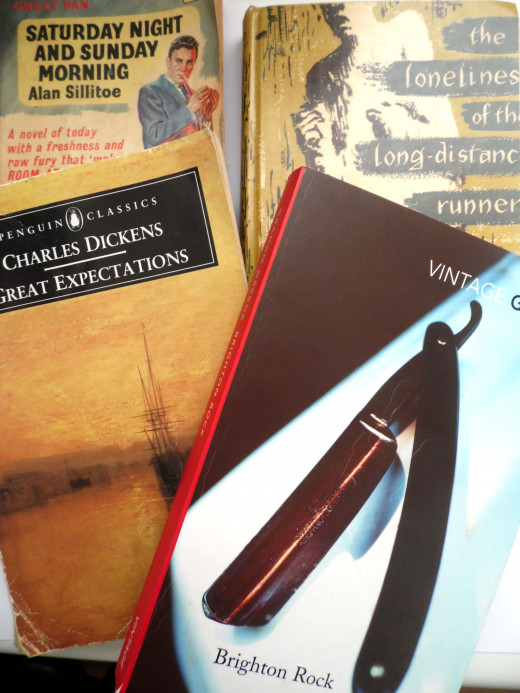
Hell Drivers (1957)
Director: C Raker Endfield
Starring: Stanley Baker, Patrick McGoohan, Peggy Cummins, Herbert Lom, William Hartnell
Fresh out of prison, Joe Yately (Baker) tries to put his past behind him by changing his name to Tom. With his new identity, he takes a job with Hawlett’s, a haulage company that transports gravel in tipper trucks. Tom is given a trial at the wheel, during which he is made to understand that speed is an essential part of the job, and failure to secure a minimum of twelve trips a day will result in dismissal. He passes the trial.
The other drivers welcome Tom with hostility. Their leader, Red (McGoohan) takes a particular dislike to Tom, but the mild-mannered Italian, Gino (Lom) offers the hand of friendship.
The drivers are a rowdy lot, who unwind in a local café and at a dance hall, but a good punch-up is never far away, and Red gives Tom a close-up view of his fists. By way of revenge, Tom determines to beat Red’s record of 18 trips in a day.
As well as those listed above, the film has a fine supporting cast that includes Gordon Jackson, Sid James, Jill Ireland, Alfie Bass, a pre-Bond Sean Connery and a pre-UNCLE David McCallum.
Trivia: David McCallum met his first wife, Jill Ireland, on the set of this film.
British Cinema in the Sixties
The League of Gentlemen (1960)
Director: Basil Dearden
Starring: Jack Hawkins, Richard Attenborough, Nigel Patrick, Roger Livesey
After being declared redundant after twenty-five years in the army, disgruntled officer, Col. John George Norman Hyde puts together a crack team of disgraced military personnel to carry out a bank raid with military precision.
Using Hyde’s spacious and secluded house as their HQ, the gang prepares for the raid; disguising stolen vehicles and carrying out a daring arms raid on an army post. Their reward for their efforts will be £100,000 each – a very tidy sum back in 1960.
With Hawkins in fine form, and an excellent supporting cast making up the misfit ranks, The League of Gentlemen takes us through the stages of intricate planning that went into this bank raid. Hyde’s insistence on not overlooking a single detail made for a perfectly plausible scheme.
So did all of this careful planning pay off? You’ll have to watch the film to find that out.
Trivia: A young and uncredited Oliver Reed made an appearance in this film.
The Loneliness of the Long Distance Runner (1962)
Director: Tony Richardson
Starring: Tom Courtenay, Michael Redgrave, Avis Bunnage, James Bolam
Colin Smith (Courtenay) has a talent for long-distance running. When he is convicted of burglary following a raid on a bakery, he is sent to Borstal for three years. Not long into his sentence, Smith’s prowess as a runner comes to the attention of the governor (Redgrave), and preparations are made to train him for a forthcoming sports meeting against a public school. The governor is almost obsessed with winning the long-distance trophy.
While his fellow inmates sleep, Smith is dragged from his bed in the early hours of the morning, and sent out into the frosty outside world in shimmy, shorts and plimsolls as he trains for the event. During these runs, the boy reflects on his life; the death of his father, the hardship and the bleak future facing him when he gets out. He struggles with authority, and he forms a distinct ‘them and us’ mentality.
For Smith, cunning is the best way to wreak revenge. Awkwardness and belligerence are not for him; he applies a far more subtle, and effective, means of hitting back at authority.
Taken from the short story by Alan Sillitoe, The Loneliness of the Long-distance Runner paints a bleak, but very engaging picture.
Trivia: British heavy metal band Iron Maiden have a song entitled The Loneliness of the Long Distance Runner on their 1986 album, Somewhere in Time, and the comedian Marty Feldman did a spoof called The Loneliness of the Long Distance Golfer in his TV show, It's Marty.
Saturday Night and Sunday Morning (1960)
Director: Karel Reiz
Starring: Albert Finney, Shirley Anne Field, Bryan Pringle, Rachel Roberts, Hylda Baker
If anything typifies the ‘angry young man’ of the post-war years, it is Alan Sillitoe’s anti-hero, Arthur Seaton. This hard working, heavy drinking philanderer’s philosophy is to have a good time, and he puts as much effort into this task as he puts into grafting at his lathe in a Nottingham bicycle factory.
Seaton has a monster-sized chip on his shoulder. He kicks out, not just at those who do the pushing around, but also at his fellow workers who allow themselves to be pushed. Even his parents come under attack;
“They have a television set and a packet of fags, but they're both dead from the neck up,” he says.
The unscrupulous upstart has an affair with Brenda (Roberts), the wife of a work mate, but then he takes up with Doreen (Field), and he seems set to embark on a relationship that is more suitable than an adulterous affair. When Brenda reveals that something that should have arrived twelve days earlier hadn’t turned up, Arthur is forced to take action.
In my opinion, Saturday Night and Sunday Morning is the pick of the so-called angry young men films that post-war period of British cinema, and Finney’s snarling performance is outstanding.
Trivia: The Arctic Monkeys’ album Whatever People Say I Am, That’s What I’m Not is taken from a line in this film.
Two Way stretch (1960)
Director: Robert Day
Starring: Peter Sellers, Lionel Jeffries , Bernard Cribbins, David Lodge, Liz Fraser, Wilfrid Hyde-White
Three crooks attempt a diamond robbery while having the tightest of alibis: they were in prison at the time of the theft.
The regime at prison is so laid-back, the crooks virtually run the place. Under these conditions, Dodger Lane (Sellers), Lenny the Dip (Cribbins) and ‘Jelly’ Knight (Lodge) are able to plan the robbery with help from friends on the outside, particularly the scheme’s mastermind, Soapy Stevens (Hyde-White), who poses as a visiting vicar trying to put the lads back onto the straight and narrow.
Everything seems to be going to plan until the arrival of 'Sour' Crout (Jeffries), a tough prison officer who is shocked at the laxity within the prison, and who vows to tighten up discipline. With their sentences almost at an end, the crooks’ window of opportunity is narrowing fast, and so Crout must be got rid of.
Trivia: Robert James, who plays the police superintendent, is dubbed.
The Wrong Arm of the Law (1963)
Director: Cliff Owen
Starring: Peter Sellers, Lionel Jeffries, Nanette Newman, Bernard Cribbins
It comes to something when a crook can’t go about his dishonest business unhindered.
The IPO Mob (Impersonating a Police Officer) is a trio of crooks posing as policemen who go around catching criminals in the act and relieving them of their booty. The boss of one criminal gang, ‘Pearly’ Gates (Sellers) is outraged at the audacity of the gang, and he vows to stamp it out.
Gates, who poses as a French fashion designer to glean information about possible theft targets from wealthy clients, gives us a hint of what was to come with Clouseau, as he flatters clients in a strong French accent, yet he reverts to his native Cockney when talking to fellow gang members. He is unaware that it is his lover, Valerie (Newman), who is passing on information to the IPO Mob.
With the aid of fellow crook ‘Nervous’ O’Toole (Cribbins), Gates manipulates the not so bright Inspector Fred ‘Nosey’ Parker to instigate a series of plans that will hopefully see the IPO mob caught. One such plan involves a cessation of all criminal activity for a 24-hour period.
A fine cast drive this light comedy vehicle to a hectic conclusion, during which only two escape; or do they?.
Trivia: Siggy Schmoltz, who appears in the clip above, is voiced by Peter Sellers.
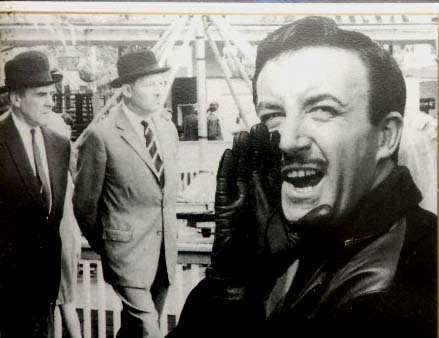
And there's more...
So that’s my ten. I came up with them in no time at all, and I had trouble deciding which titles to omit. There are many other classic British monochrome movies of similar quality to those listed above, including Oliver Twist (1948), Room at the Top (1959), A Taste of Honey (1958), Too Many Crooks (1959), I’m All Right, Jack (1959), The Angry Silence (1960), Jigsaw (1962), A Kind of Loving (1962), Seance on a Wet Afternoon (1964) and The Big Job (1965). I could go on.
Why not check out some of these masterpieces of British cinema?


